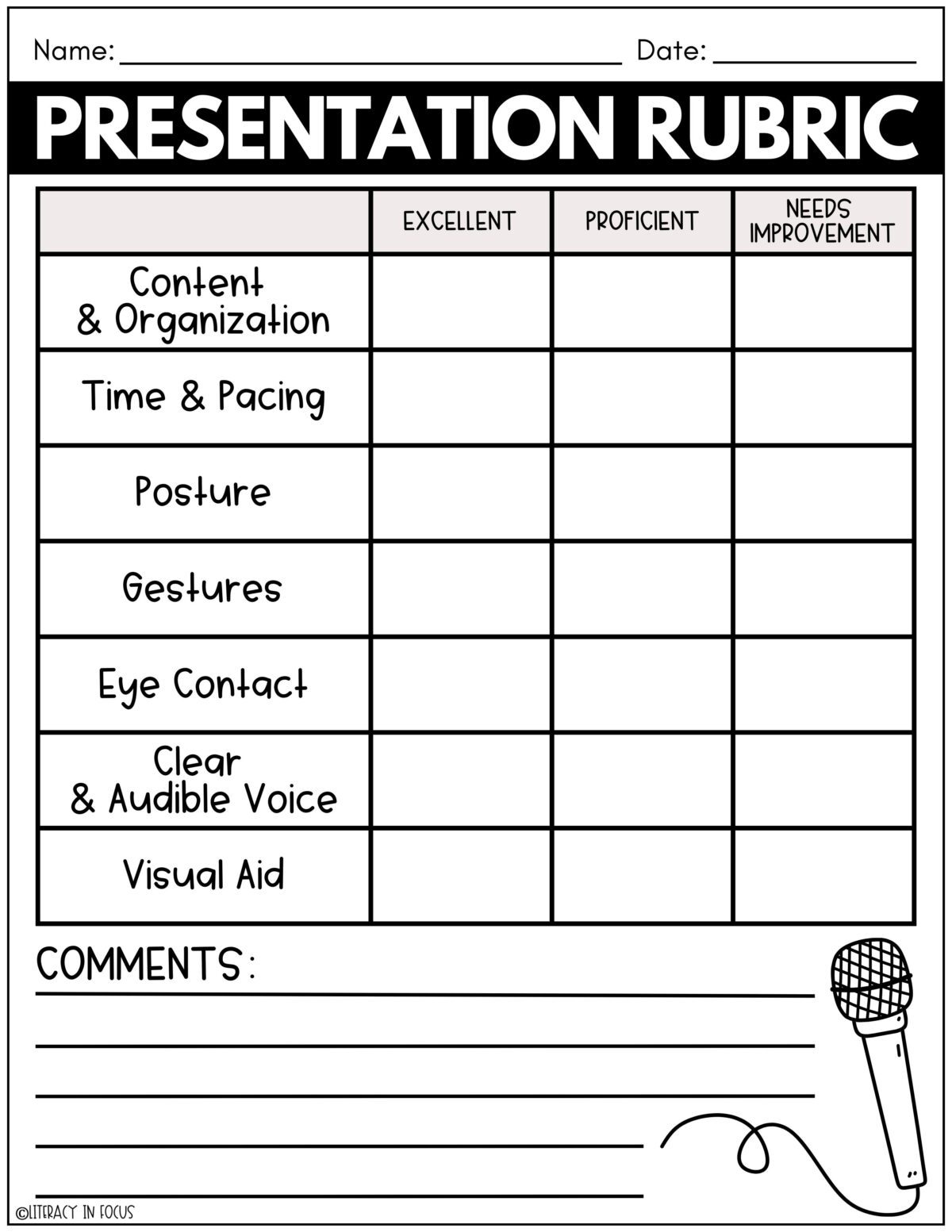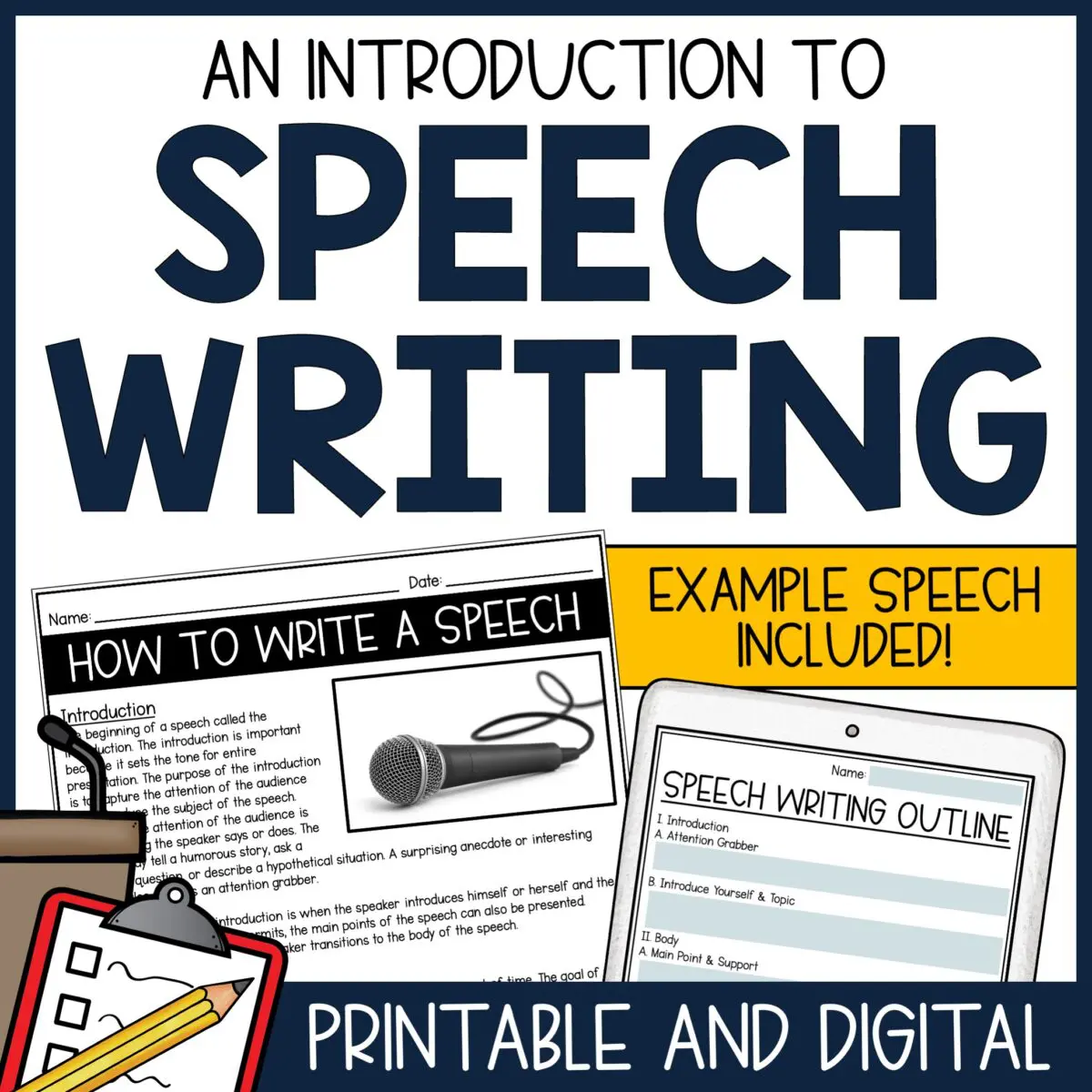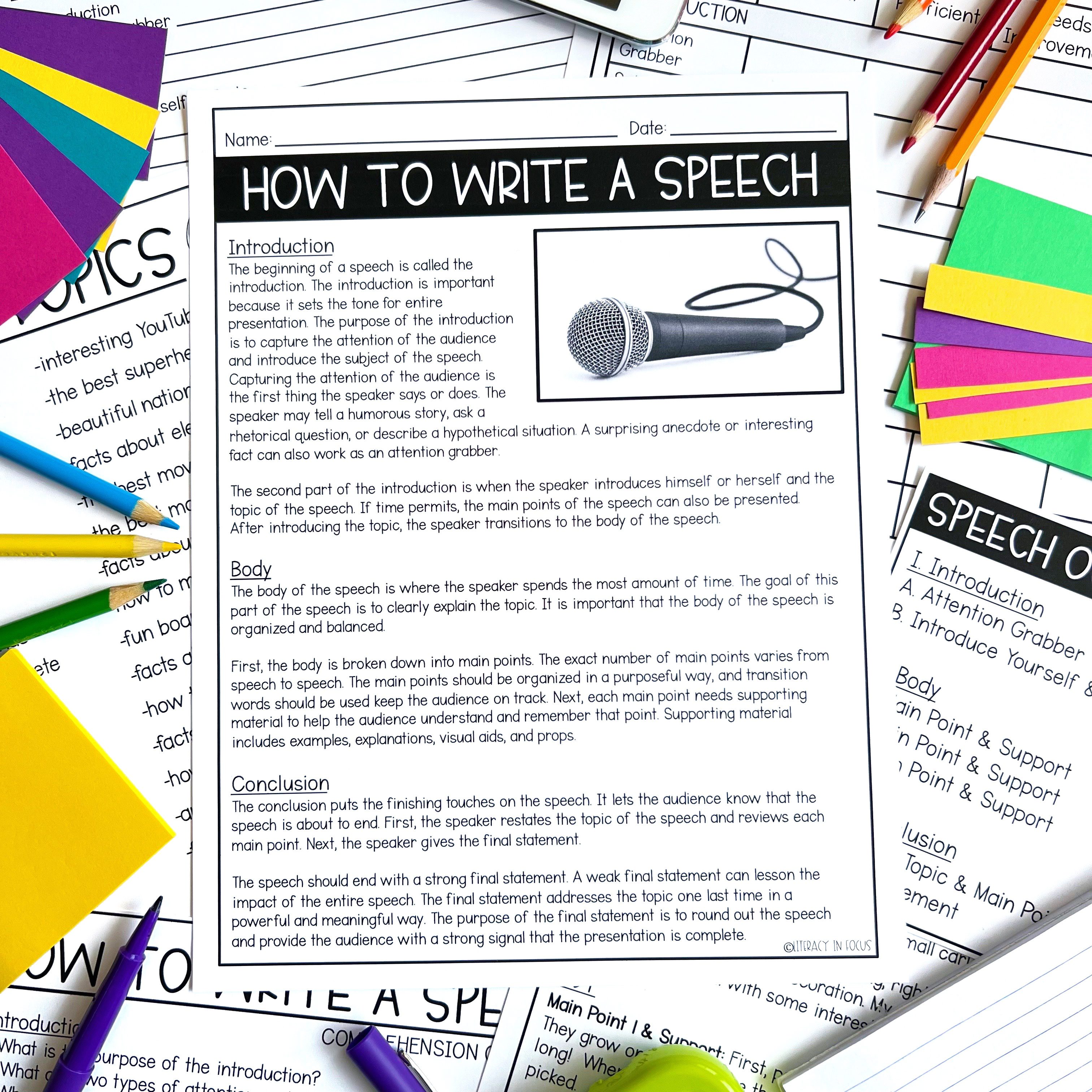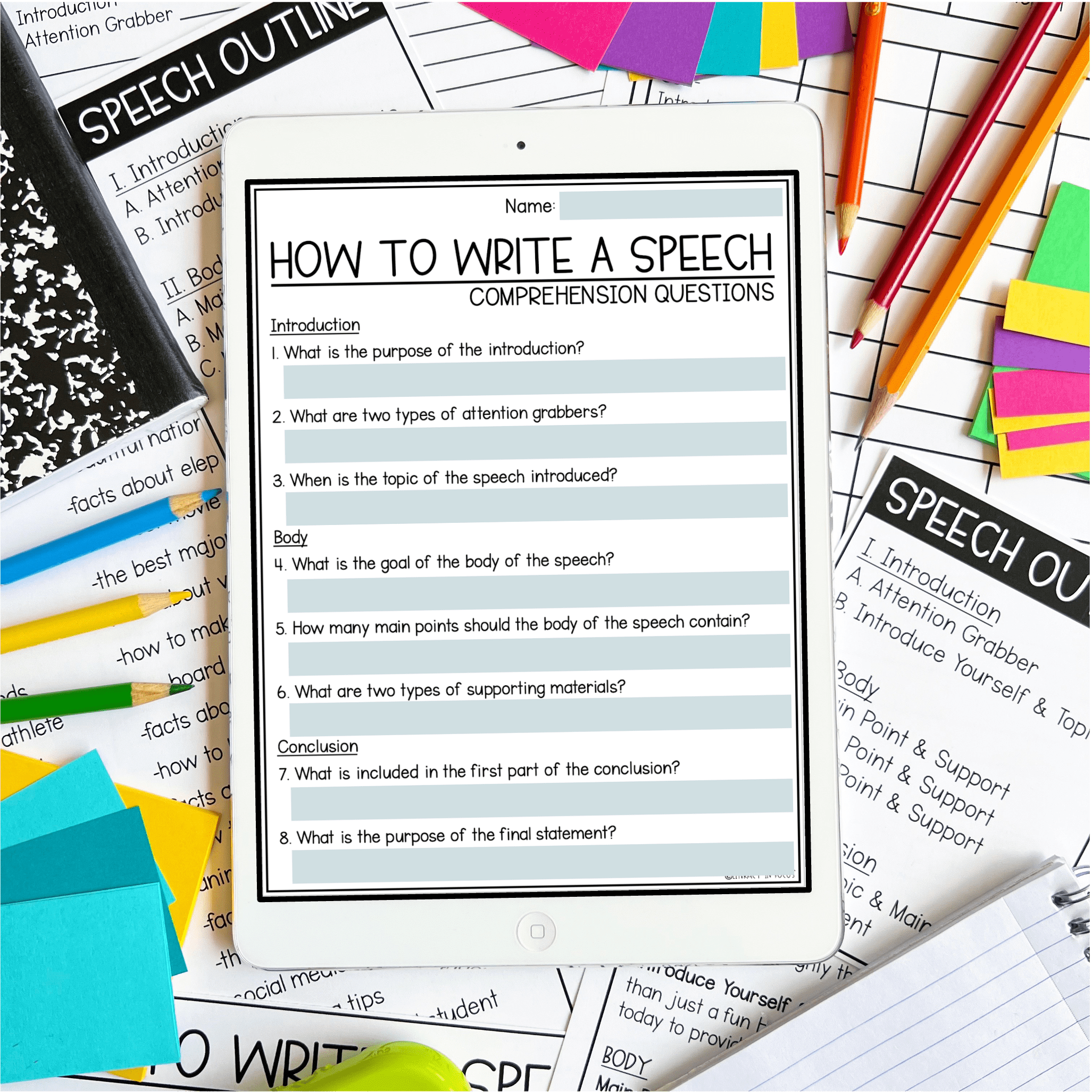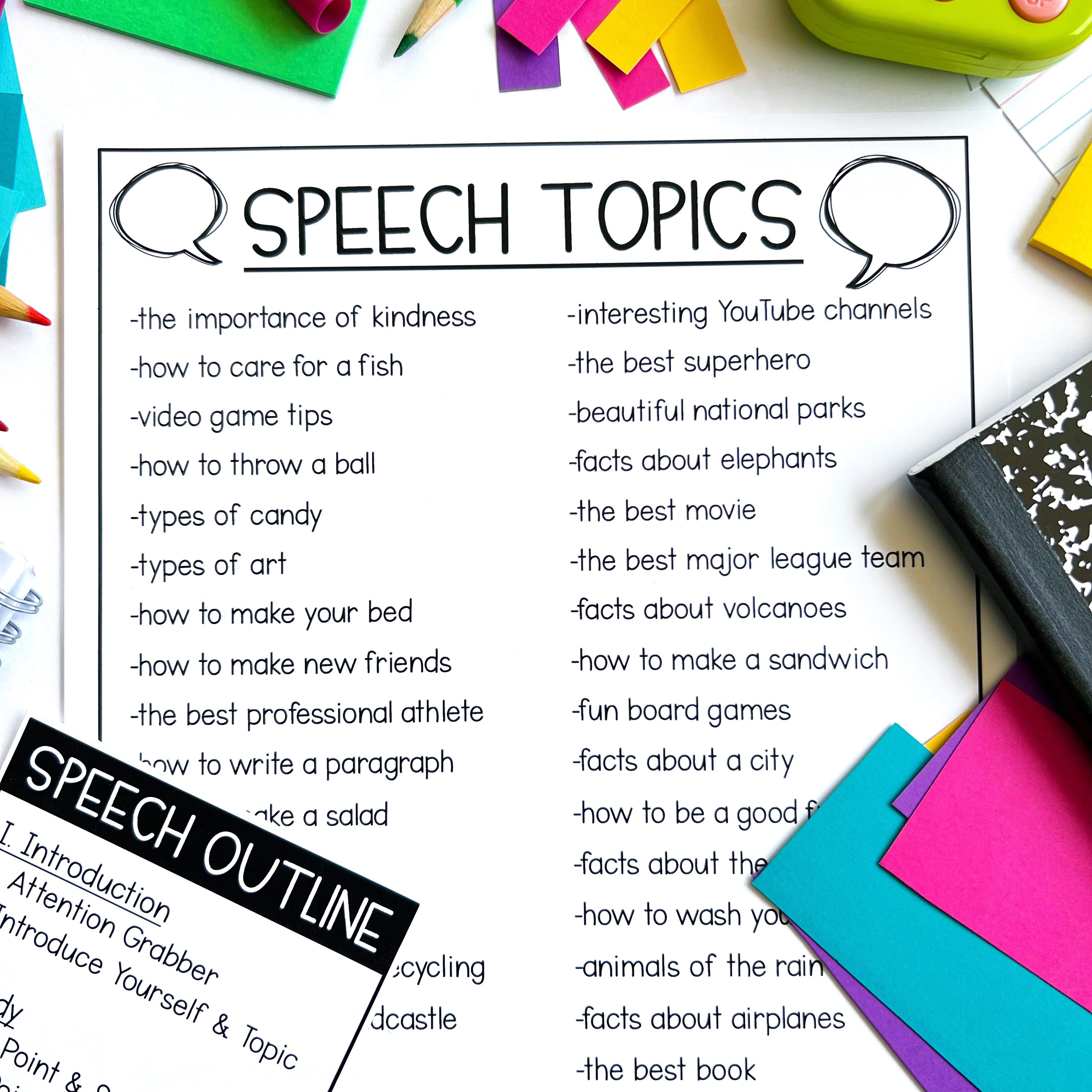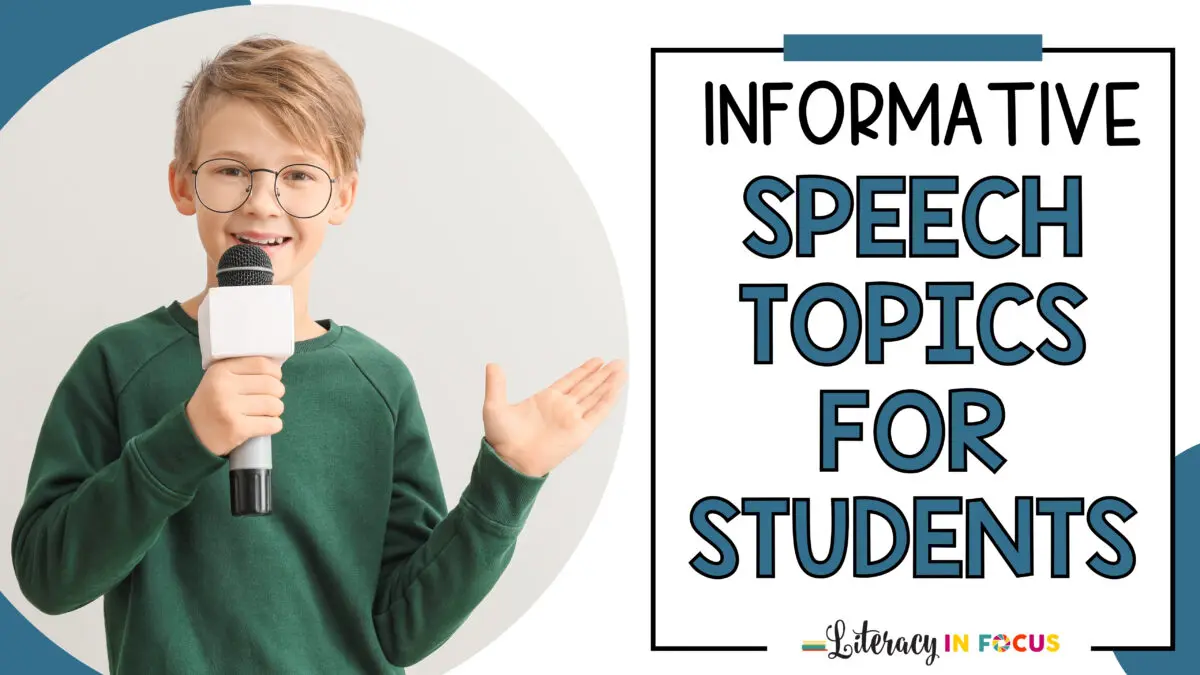
Informative Speech Topics for Students
These engaging speech topics are perfect for students learning to speak in front of an audience. The list includes a variety of informative speech topics that are versatile and appropriate for kids. Public speaking is difficult for most students, so choosing the right topic is an essential first step.
What is an informative speech?
An informative speech presents information about a topic to an audience. The primary goal of an informative speech is to share factual information, explain concepts, or describe something in a way that helps the audience understand and learn. Unlike persuasive speeches, informative speeches do not attempt to change the audience’s minds or attitudes about a particular issue.
Types of Informative Speeches
Definition: A definition speech provides a clear, precise, and comprehensive understanding of a term, concept, or idea. For example, a speech about cryptocurrency might include what it is, how it’s used, and why it was created.
Demonstration: A demonstration speech explains how to perform a task or process. For example, a speech about baking an apple pie might walk the audience through each step of the recipe, from start to finish.
Explanation: An explanatory speech helps the audience understand how something works or why something happens. For example, a speech about photosynthesis might explain the process that takes place when plants convert sunlight into energy.
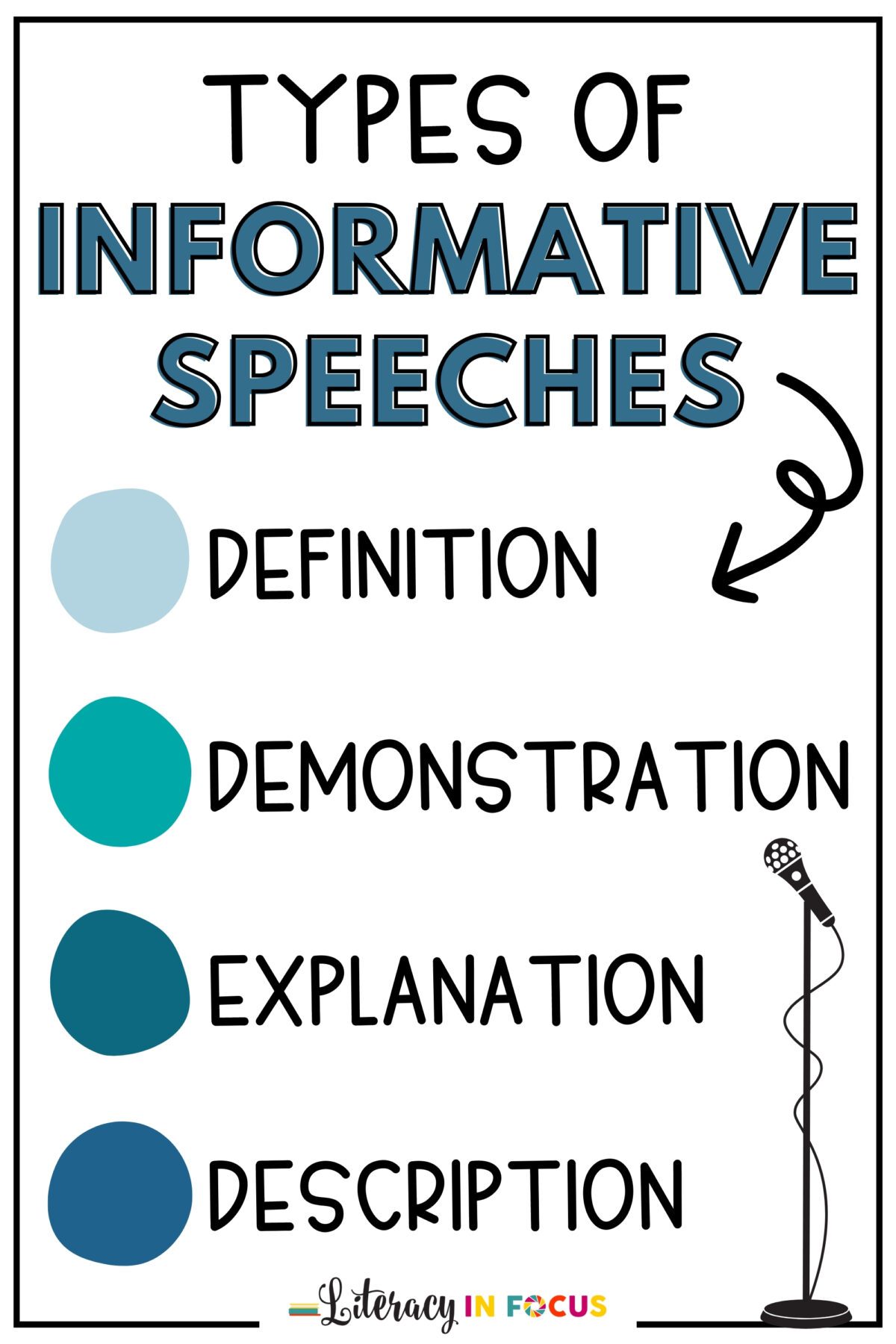
Description: A descriptive speech includes vivid details and descriptions about a particular person, place, object, or event. For example, a speech about the Grand Canyon might describe its size, geological features, and history.
How to Select an Informative Speech Topic
Selecting an informative speech topic can be a daunting task. Students can review the criteria listed below to make the process easier and more manageable.
Identify Personal Interests: Consider what topics genuinely interest you. Think about subjects you are curious about, hobbies you enjoy, or areas where you have some expertise. By selecting a topic you are interested in, you are more likely to deliver a compelling and engaging speech.
Recognize Expertise: Selecting a topic in your area of expertise allows you to showcase your knowledge and experience. Being well-versed in the subject matter boosts your confidence, enabling you to speak with authority and easily answer questions. A speech that demonstrates expertise helps to establish credibility and enhances your reputation as a knowledgeable and trustworthy speaker.
Consider The Audience: Who will be listening to your speech? What are their interests and concerns? Selecting a relevant topic will help the audience remain engaged and interested in what you have to say.
Think About Timing: Choose a topic that is manageable in the time allotted for your speech. You want to make sure you have enough time to cover all the key points and ideas in your speech without rushing or leaving out important information.

| the importance of kindness | how to write a paragraph | camping tips |
| how to care for a fish | how to make a salad | the best theme park |
| video game tips | fashion tips | interesting YouTube channels |
| how to throw a ball | helpful apps | the best superhero |
| types of candy | the importance of recycling | beautiful national parks |
| types of art | how to make a sandcastle | facts about elephants |
| how to make your bed | dream job ideas | the best movie |
| how to make new friends | the importance of exercise | the best major league team |
| the best professional athlete | vacation ideas | facts about volcanoes |
| how to make a sandwich | facts about the ocean | the best book |
| fun board games | how to wash your hands | social media tips |
| facts about a city | animals of the rainforest | gardening tips |
| how to be a good friend | facts about airplanes | how to be a good student |
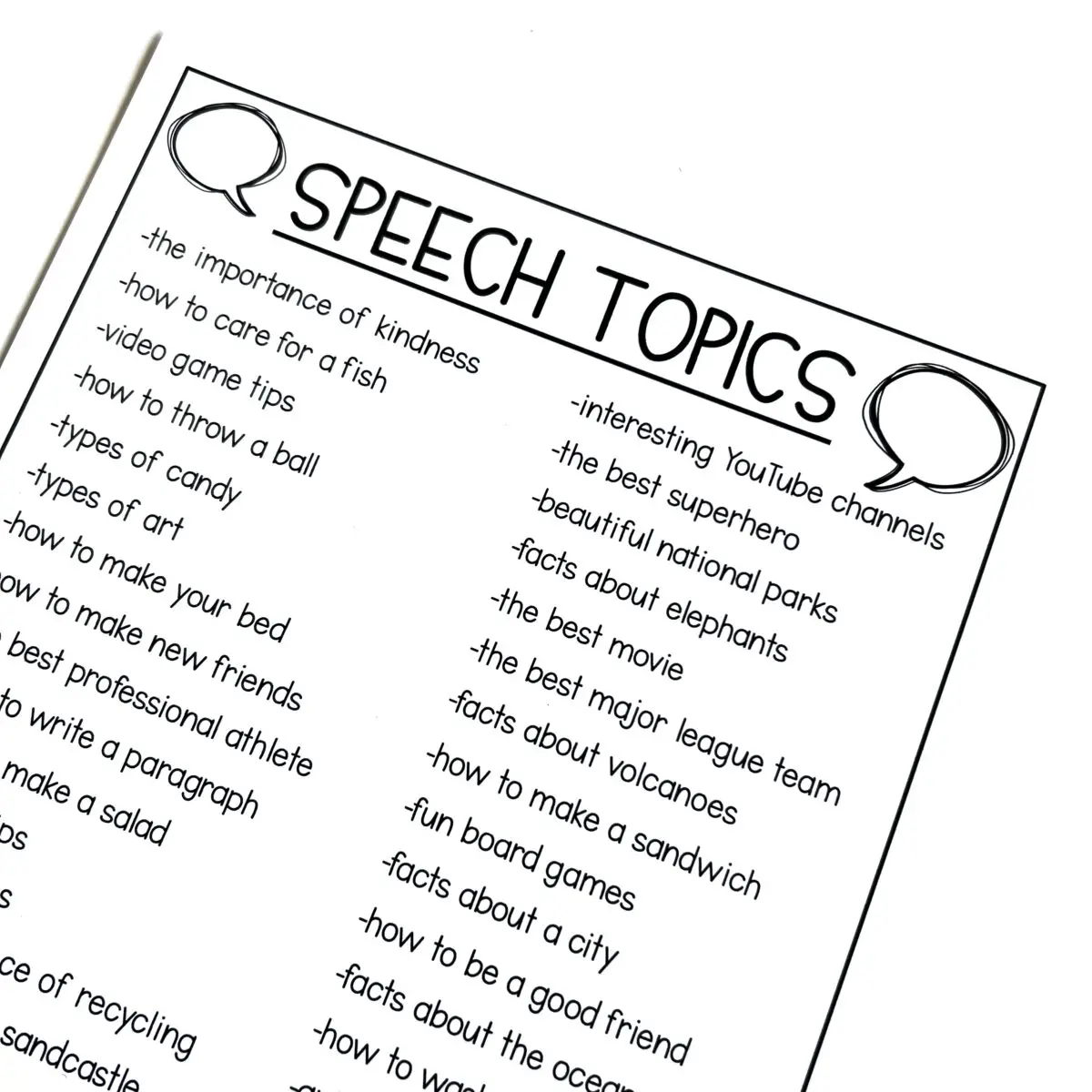
Informative Speech Structure
An informative speech has three parts: an introduction, a body, and a conclusion. Here is a general overview of what to include in each part of the speech. Click here for a more detailed speech outline.
Introduction:
- Attention-Grabber: Tell a humorous story, ask a question, describe a situation, or share an interesting fact to capture the audience’s attention.
- Preview: Introduce the topic of the speech. The main points can also be presented at this time.
Body:
- Main Points: The number of main points will vary from speech to speech. It is important to keep the main points organized.
- Supporting Details: Each main point needs supporting details. Examples, explanations, visual aids, and props can be used as supporting material.
Conclusion:
- Final Statement: Address the topic one last time in a powerful and meaningful way.
Click here for ten helpful public speaking tips for students!
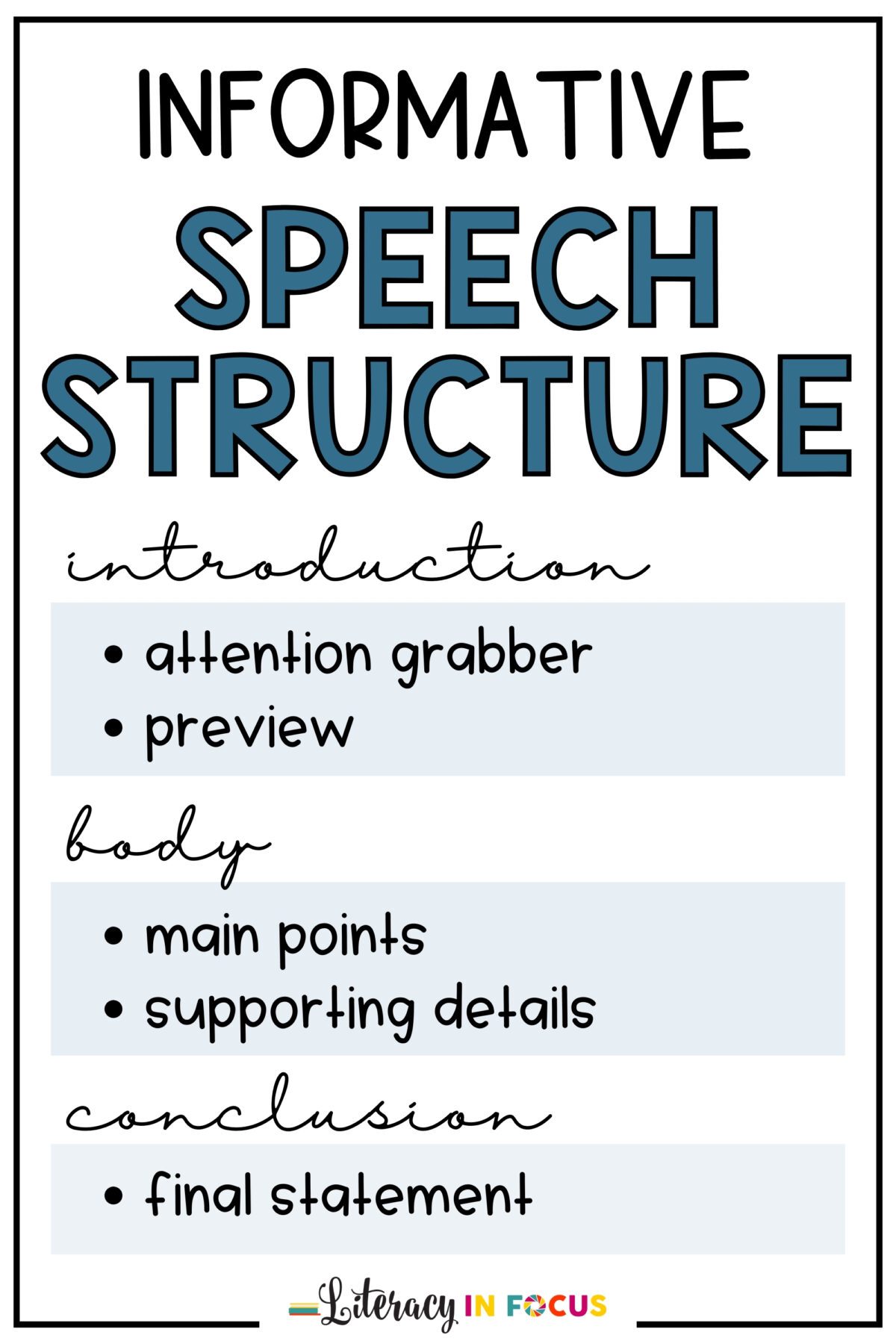
Introduction to Speech Writing | Print & Digital Lesson
“This is a great unit. My students have a speech project they are doing and this was perfect to introduce and learn about writing speeches.” -Katie I.
Students LOVE this microphone!
This wireless Bluetooth microphone is perfect for student presentations, read alouds, speeches, and so much more! The microphone has 27 colorful LED lights that flicker in rhythm with the voice. You can also use this wireless microphone as a portable Bluetooth speaker. It’s available in a bunch of different colors, and it comes with a nice storage case.
⭐️⭐️⭐️⭐️⭐️ Over 18,000 ratings on Amazon!
“The kids loved this! I think it encouraged them to try to talk more!”
This post contains affiliate links. Click here to read my affiliate policy.
Presentation Rubric | Free Download

